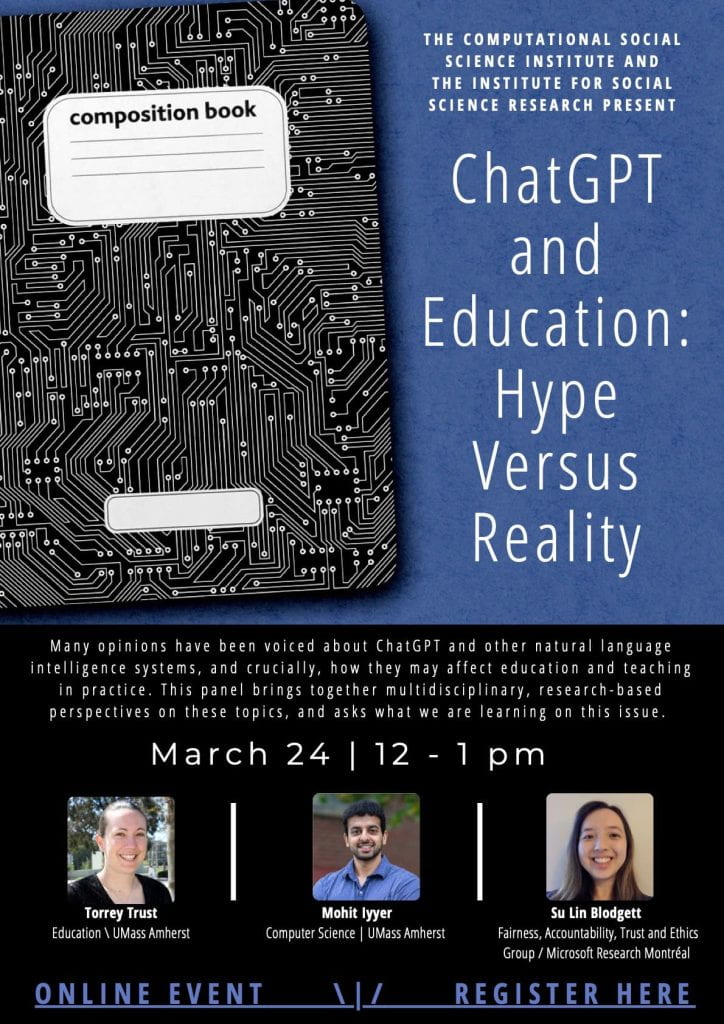
ChatGPT and Education: Hype Versus Reality
March 24th, 2023- 12-1 PM
Online Event – Register Here
In a few short months, many of us have heard of or tried ChatGPT, the large language model (LLM) that generates coherent texts on demand in a broadly accessible chat interface. Many opinions have been voiced about ChatGPT and other natural language intelligence systems, and crucially, how they may affect education and teaching in practice. Are LLMs an unstoppable force for cheating, a powerful tool for learning, or all or none of the above?
In this panel we’ll bring together multidisciplinary, research-based perspectives on these topics — UMass professors and an alum who are world-leading experts in the large language models, the impact of technology on education, and social implications of language technologies. In the question period, we invite community members to share examples of what they’ve seen from ChatGPT in practice. What have we learned about these issues, and what plans, if any, should we have going forward?